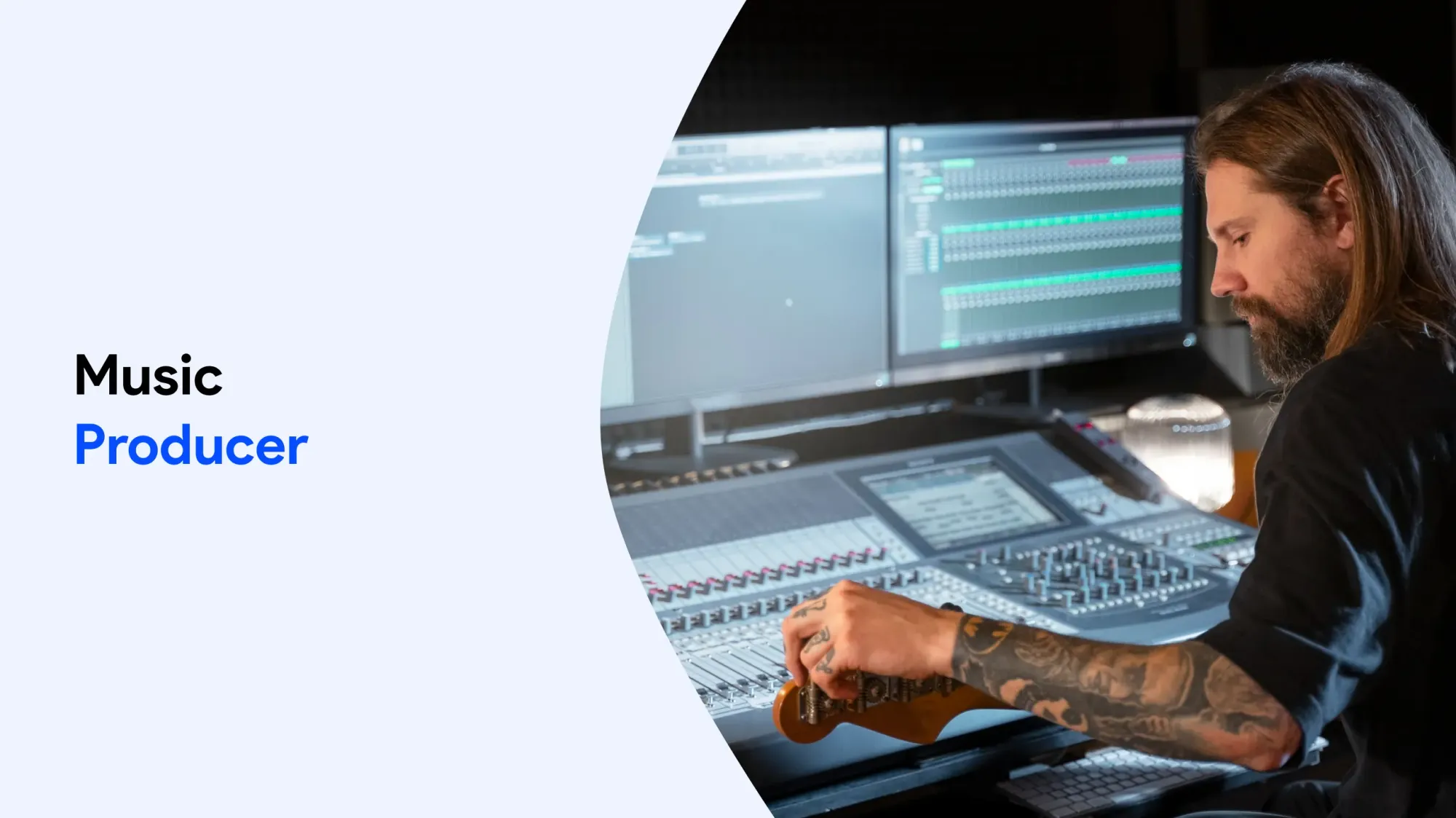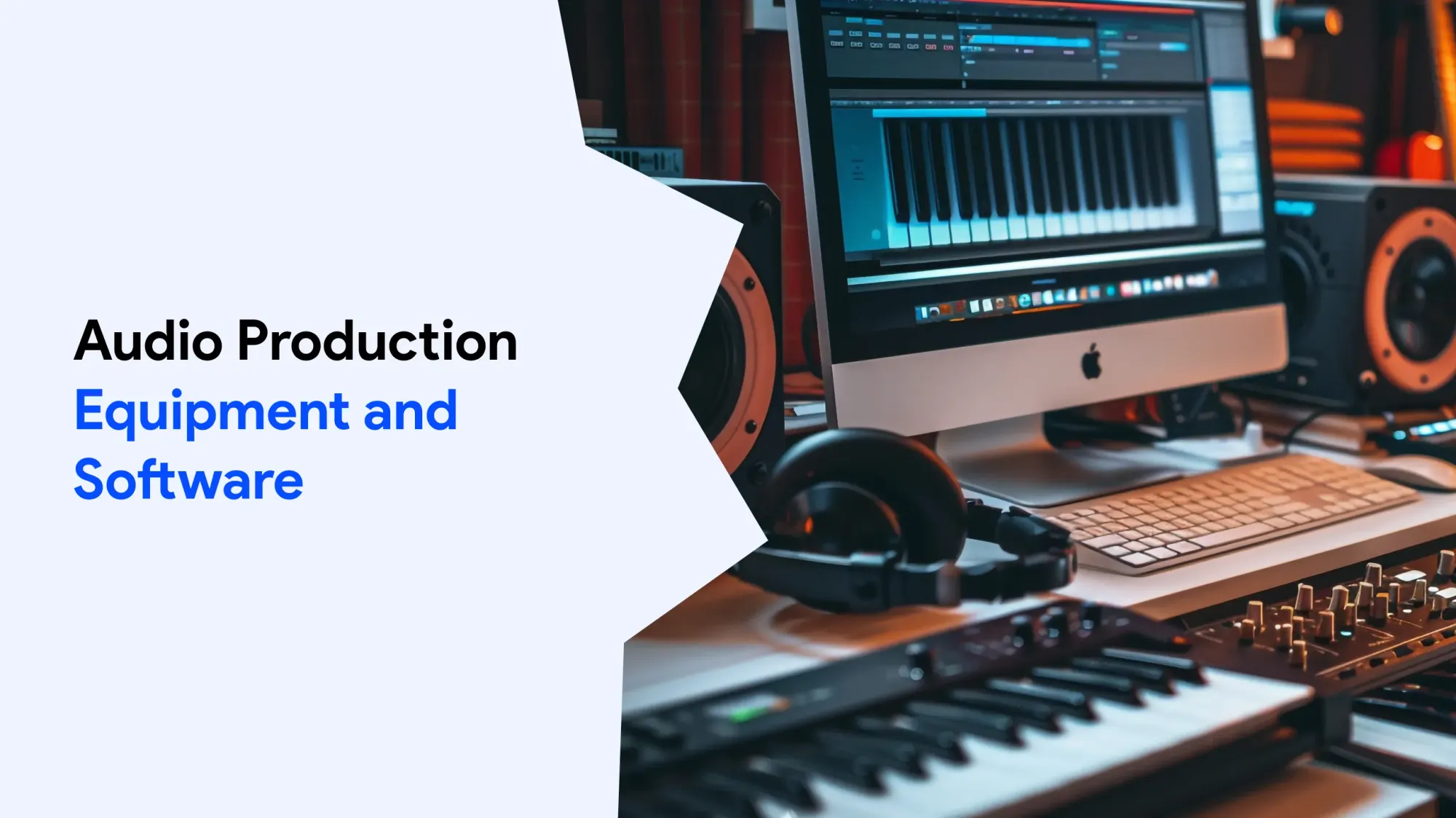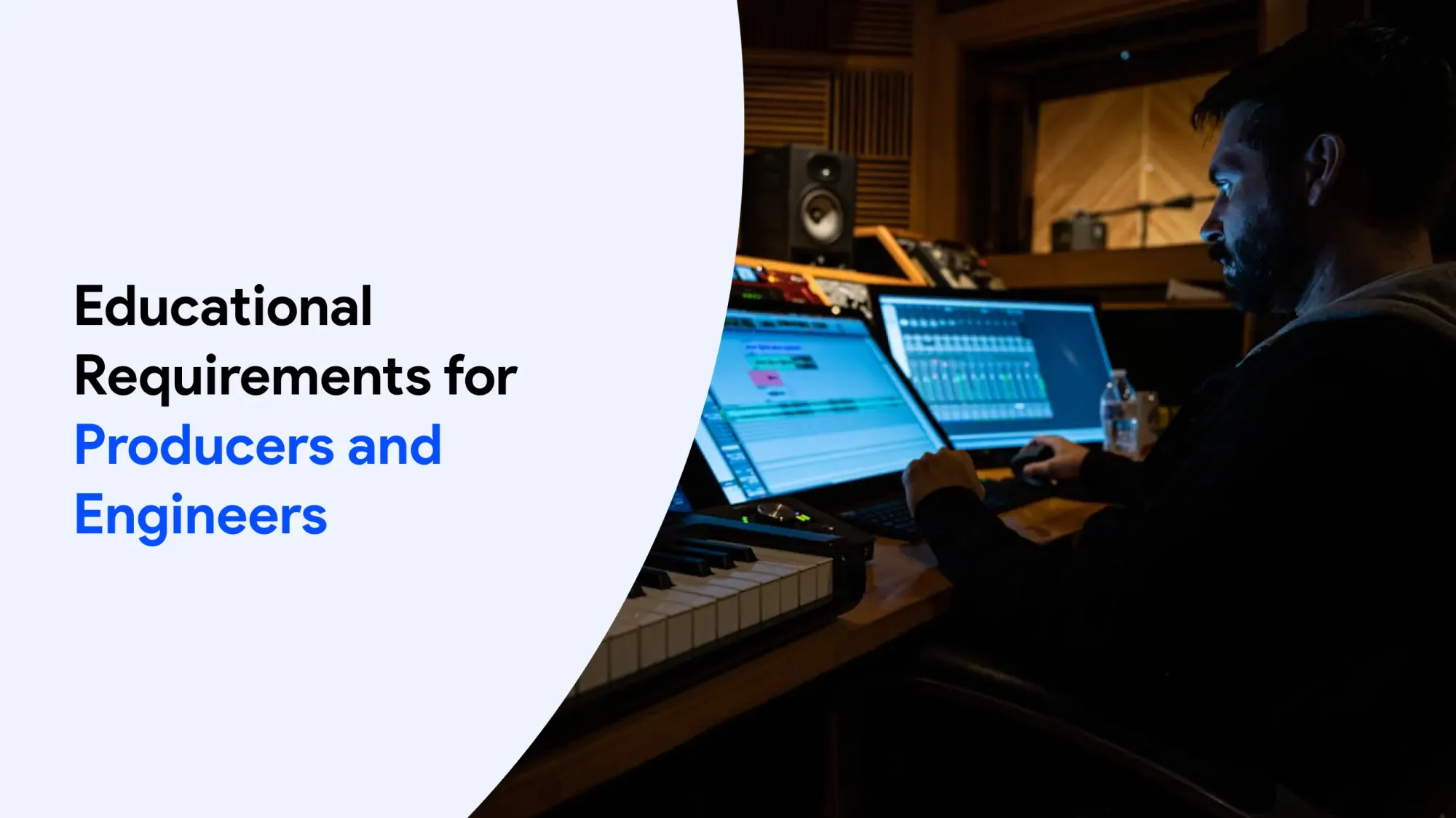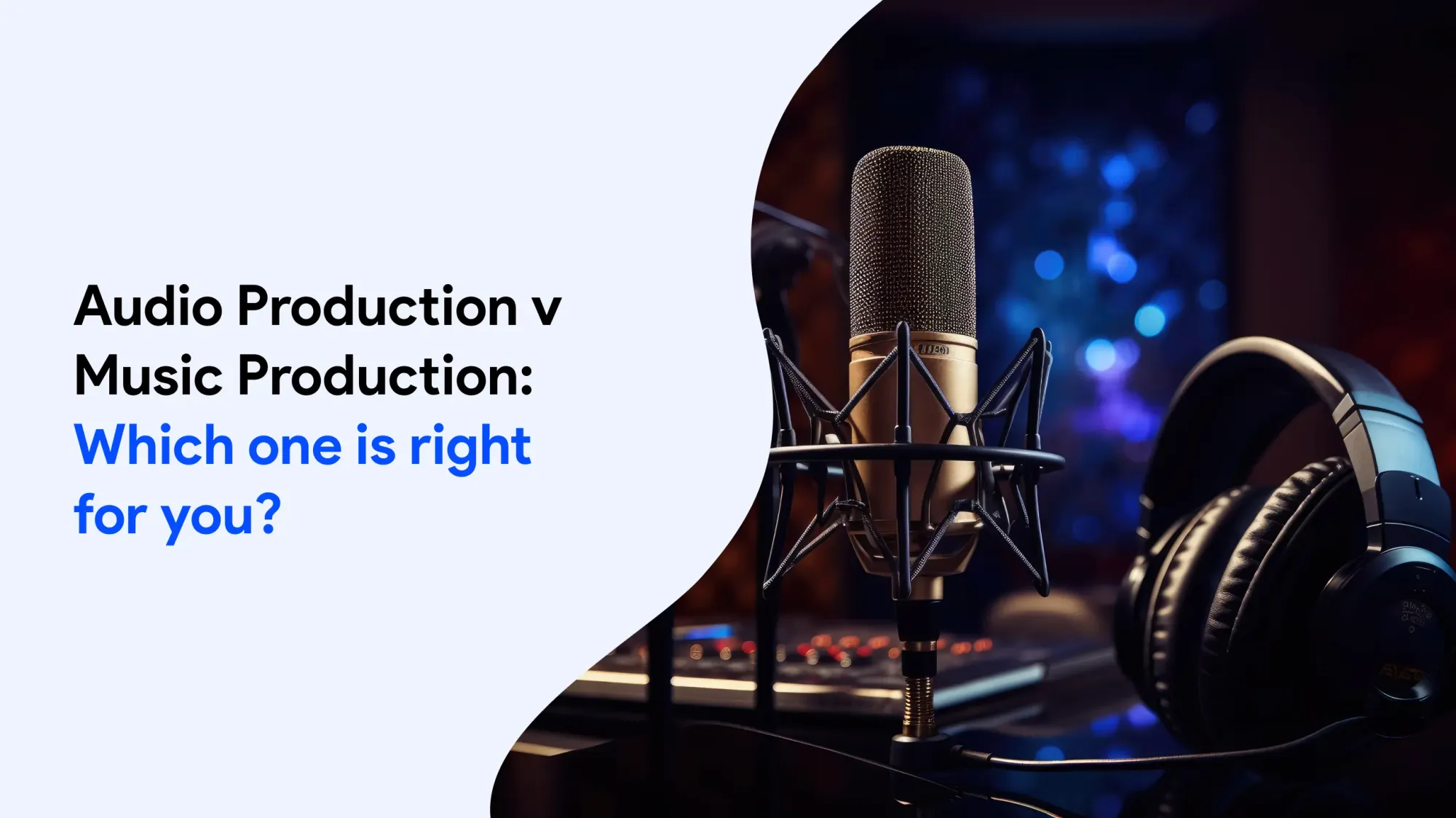Introduction to the Industry
The music industry has many career paths, especially in music production and audio production. Each role needs different skills and creativity.
Music producers shape the sound of a song. They work with artists to turn ideas into finished tracks.
Audio engineers handle the technical parts. They edit, mix, and make sure the sound is clean and professional.
Both jobs use tools like Pro Tools and Logic Pro in a recording studio. There, producers, engineers, and artists work together to make music.
These professionals can freelance or work full-time in studios. Since sound quality matters a lot, good producers and engineers are always needed.
Music Production Overview
Music production is the process of making music. It includes both creative and technical steps, like beat making, using music theory, and designing sounds.
Music producers manage the whole process, from planning to the final version. They work with artists, musicians, and audio engineers to create finished songs.
They also handle scheduling studio sessions and making sure everything fits the budget and timeline.
The main steps in music production are recording, editing, and mixing. Producers use tools like virtual instruments, recording gear, and software to shape how the music sounds and make it flow smoothly.
Producers can work in many music styles, including electronic music. Their job is to make sure the final track sounds great and has high production value.
A good music producer understands both the creative and technical sides of music. They also need to know how to guide artists and bring their ideas to life.
Production plays a crucial role in both the music and audio industries. The production process involves multiple stages, including recording, editing, mixing, and mastering, all essential to creating a polished final product.
Skilled producers oversee the entire production, ensuring that every detail aligns with the artistic vision. Whether working on a recording project or live sound, production requires a blend of technical expertise and creative insight.
Advances in technology have transformed production, enabling producers to use digital audio workstations and sophisticated audio equipment to elevate the quality and impact of their work.
Music Producer
A music producer is key to making songs and albums. They manage the whole project from beginning to end, using both creativity and technical skills to guide the process.
Producers help arrange the music, lead recording sessions, and work closely with the team to shape the sound. They often use digital tools like audio workstations to edit vocals, instruments, and tracks.
Their job is to turn raw recordings into a finished song that sounds great to listeners. Well-known producers like Quincy Jones show how creative the role can be.
Producers also make sure artists give their best performances during recording.
Music production is a dynamic field that combines creativity and technology to bring musical ideas to life. In music production, producers oversee the entire recording process, ensuring that each element contributes to the final sound.
Successful music production requires a deep understanding of both musical theory and recording technology. Many aspiring professionals start their careers by learning the fundamentals of music production, including arranging, editing, and mixing tracks.
The art of music production continues to evolve with advances in software and audio equipment, making it an exciting and ever-changing industry for those passionate about creating music.
In the music industry, the role of a music producer is both vital and multifaceted. A music producer oversees the entire creative and technical process of making music, guiding musicians and musicians from the initial concept to the final result. The music producer is responsible for shaping the noise and style of a recording, ensuring that the artistic vision is realised in the best possible way.

A skilled music producer not only has a deep understanding of musical theory and composition but also possesses technical expertise in operating recording equipment and packages. This combination allows the music producer to make informed decisions during recording sessions, mixing, and mastering. The music producer works closely with audio engineers and noise designers to achieve a polished and professional noise.
During the recording process, the music producer plays a crucial role in coaching musicians to deliver their best performances. They provide feedback on vocal delivery, instrumentals, and overall arrangement, helping to enhance the emotional impact of the music. The music producer also manages the recording phase, ensuring that they stay on schedule and within budget, which is essential for successful project completion.
The music producer’s imaginative input often extends to songwriting and arranging, where they may suggest changes to melodies, harmonies, or rhythms to improve the tracks. They also oversee the revising audio phase, where individual traces are refined and mistakes are corrected. This attention to detail is a hallmark of an experienced music producer.
In today’s digital age, the music producer frequently uses DAWs like Pro Tools and Logic Pro to manipulate recordings and add effects. Mastery of these tools allows the music producer to experiment with sound design and create unique sonic textures that define the character of a tune.
Many aspiring music producers start their careers as assistants or interns in recording studios, gaining hands-on experience and learning from seasoned professionals. The journey to becoming a successful music producer involves continuous learning and adapting to new technologies and trends in the music industry.
Ultimately, the music producer’s goal is to bring out the best in the artists and the music itself, crafting tracks that resonate with listeners and stand out in a competitive market. Whether working on a solo artist’s album or a full band’s project, the music producer’s expertise and vision are essential to the production process and the creation of memorable music.
Audio Production Overview
Audio production is the process of capturing, editing, and improving sound. This includes music, voice-overs, and sound effects, using special equipment and engineering techniques.
Audio engineers make sure the sound is clear and high-quality. They remove background noise and fine-tune audio to create a polished final version, which is especially important in studios and for record labels.
Audio production is important not just in music, but also in film, TV, and live events. Sound engineers help with mixing and editing to get the best sound possible.
Audio producers are needed in many fields, including music, podcasts, and movies. The mastering stage makes sure the sound is ready for release on different platforms.
Audio engineers must know how to use audio tools and software. They also need to work well with producers, artists, and musicians to get the right sound.
The main steps in audio production are recording, editing, and mixing. Engineers use their skills at each stage to produce high-quality audio.
Recording Studio Operations
Recording studios play a key role in music production. They’re the place where artists, musicians, and producers work together to create and record music using high-end tools and technology.
Running a studio includes important tasks like maintaining equipment, scheduling sessions, and handling client needs. These help keep everything organised and running smoothly.
Many audio and music producers begin by working as interns or assistants in studios to gain hands-on experience.
Studios usually offer services like recording, correction, and mixing. They may also provide equipment rentals and technical help, which are useful for producers and engineers.
These studios are creative spaces where music ideas become real songs. Producers and audio engineers work side by side to make sure the sound is professional and polished.
Some studios also offer extra services like mastering and sound design to ensure the final product is ready for release and sounds its best.
Audio Production Equipment and Software

Audio production equipment and software are essential for music producers and audio engineers. They help create, record, and correct clear, high-quality sound.
Common equipment includes microphones, preamps, and recording interfaces. Producers also use digital audio workstations (DAWs) like Pro Tools and Logic Pro to correct and mix tracks.
The tools used can vary depending on the project and the preferences of the producer or engineer.
Knowing how to use a mixing console is important for producing professional-quality audio.
Technology in audio production is always changing. New tools and software bring fresh opportunities but can also present challenges.
To succeed, a music producer or audio engineer must understand how to use these tools well and stay updated with the latest technology.
Digital Audio Workstation
A DAW is a main tool used in music and audio production. It’s software that lets producers and sound engineers record, correct, mix, and finish songs.
Popular DAWs like Pro Instruments and Sense Pro have tools like virtual instruments, sound effects, and multi-track recording.
Learning how to use a DAW is important. It helps control each sound, improve quality, and turn music ideas into real songs.
Whether you’re making a full album or just one track, producers use DAWs to create great-sounding music.
Audio Engineer
An audio engineer focuses on recording, correcting, and mixing sound to make sure it sounds the best it can. They use recording equipment, fix technical problems, and work with producers and artists to get the right sound. They must know how to use digital audio programs and mixing consoles well.
Record Producer
A record producer manages the whole music-making process, from early ideas to the final finished song. They help guide artists, run recording sessions, and work with sound engineers to shape the sound. Their job mixes creativity and technical skill to make sure the music connects with listeners.
Sound Engineers
Sound engineers handle the technical side of audio. They mix sound, remove background noise, and correct tracks to make everything sound clear and balanced. They play an important role in studios, live shows, and broadcasts, making sure the sound is high quality in every setting.
Educational Requirements for Producers and Engineers

Most sound engineers start with at least an associate degree. This gives them a basic understanding of how sound works—like amplitude, frequency, and waveforms—which is important for producing good-quality audio.
Audio engineering programs often teach hands-on skills, such as using mixing boards, audio programs, and fixing technical issues. These skills help students feel confident working with complex equipment.
Many new producers begin by working as interns or assistants to experienced producers. This on-the-job training helps them understand both the creative process and how a recording studio operates day to day.
While some producers study music production in college, it’s not always required. What matters more is having strong musical knowledge, technical skills, and good industry connections.
Audio engineers use key tools to do their jobs, such as a DAW, which is where they record, correct, mix, and finish tracks. Other important tools include MIDI controllers and microphones, which help capture and shape the sound.
Being skilled with this equipment helps engineers keep sound quality high and fix problems during recording.
Many professional sound engineers attend special schools to learn more about sound science and advanced recording gear. This training prepares them for work in studios, live shows, and other music industry jobs, where top-level sound production is a must.
Some producers work as freelancers, taking on different projects with many artists. Others have full-time roles with record labels or studios, handling everything from the first idea to the final trace.
Their job mixes creativity with technical work and involves working closely with both sound engineers and musicians to bring tunes to life.
In short, audio engineers and music producers need both technical training and creative skills to succeed in the fast-changing music world.











